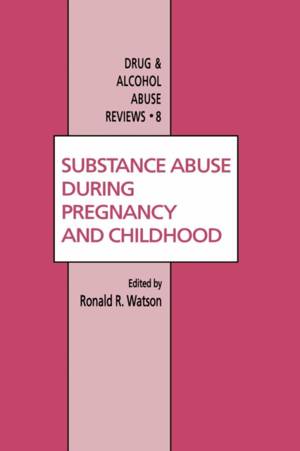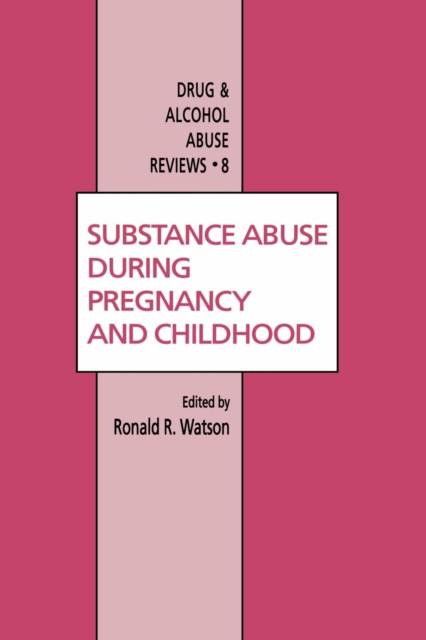
Bedankt voor het vertrouwen het afgelopen jaar! Om jou te bedanken bieden we GRATIS verzending (in België) aan op alles gedurende de hele maand januari.
- Afhalen na 1 uur in een winkel met voorraad
- In januari gratis thuislevering in België
- Ruim aanbod met 7 miljoen producten
Bedankt voor het vertrouwen het afgelopen jaar! Om jou te bedanken bieden we GRATIS verzending (in België) aan op alles gedurende de hele maand januari.
- Afhalen na 1 uur in een winkel met voorraad
- In januari gratis thuislevering in België
- Ruim aanbod met 7 miljoen producten
Zoeken
Substance Abuse During Pregnancy and Childhood
€ 167,95
+ 335 punten
Omschrijving
Alcohol and other drugs of abuse cause significant physi- ological changes, especially during development. The effects on the infant and child range from severe mental retardation to mild changes in activity and neurological functions. Although the level of intake needed to cause fetal damage is not clear, the magnitude of the problem is significant, with many long-term sequelae. As a result, it becomes critical to better diagnose and manage drug and alcohol use during pregnancy. This must involve special training for health care professionals. In addi- tion, recognition of the psychosocial factors affecting alcohol use, especially by youth and young adults, is critical to modi- fying behavior, and thus reducing fetal alcohol exposure. Cultural considerations can also come into play in modi- fying alcohol and drug use by women so as to reduce fetal damage. The trends in alcohol and drug use by youth forecast rising levels of damage to infants. These children will need extensive medical and educational care for years to decades. Clearly, understanding of the role women must take in modifying their alcohol and drug use during pregnancy will facilitate changes in our cultural and educational practices that will help reduce fetal trauma from alcohol.
Specificaties
Betrokkenen
- Uitgeverij:
Inhoud
- Aantal bladzijden:
- 126
- Taal:
- Engels
- Reeks:
- Reeksnummer:
- nr. 8
Eigenschappen
- Productcode (EAN):
- 9781461266747
- Verschijningsdatum:
- 9/10/2012
- Uitvoering:
- Paperback
- Formaat:
- Trade paperback (VS)
- Afmetingen:
- 152 mm x 229 mm
- Gewicht:
- 195 g

Alleen bij Standaard Boekhandel
+ 335 punten op je klantenkaart van Standaard Boekhandel
Beoordelingen
We publiceren alleen reviews die voldoen aan de voorwaarden voor reviews. Bekijk onze voorwaarden voor reviews.








